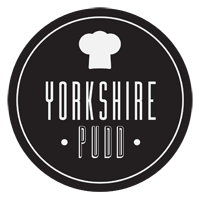is Tech Ruining the Food Industry?
Digital technology has rapidly taken over our world, but has this been a good thing or a bad thing for the food industry? Discover more, here…
A 2018 study showed that a large number of university students would rather go without food than without their phones. As someone who lives to eat, rather than vice versa, I strongly disagree. But, with this bizarre fact in mind, imagine what your lockdown would look like without your phone?
Say you lost it, broke it or, in an extreme case, the police have your phone for evidence. Would your pandemic lockdown look a lot different to what it looks like now? Perhaps you’d be reading more books, exercising more, talking with your loved ones, or maybe you’d be experimenting in the kitchen more?
Today, we’ll be taking a deeper look into how digital technology affects the food industry – good or bad. We’ll also be diving into what our coronavirus lockdown might look like without technology. So, is the food industry now reliant on digital technology? Let’s find out…
What is Digital Technology?
Firstly, for the novices out there, let’s first address the question of what we could class as digital technology. Some types of digital technology include:
- Computers: these are a truly life-changing addition to our lives, allowing us not only browse blogs and websites, but buy and sell goods online, bank online, and message people across continents.
- Smartphones: these little gadgets now contain everything we’d ever need, so we can listen to music, engage with people on social media, call one another, video chat, tell the time, play games, do maths, and more, all en route.
- Television: television has now adapted into digital streaming, allowing us to watch TV shows and movies on demand. The guys at Infinity Dish have compiled some excellent data on the stability and change in the way we consume cable and satellite television.
- eBooks: we can even download books online, enabling us to access millions of literature masterpieces in the comfort of our homes.
- Geolocation: nowadays, not only can we access maps to show us where to go, we can even tell whereabouts our friends are, with the click of a button.
- Other: we can’t forget about everything else that keeps our world spinning, including printers, self-scan machines, ATMs, drones. Now, even our cars contain digital technology!
To top it all off, there are even some examples of digital technology in the classroom having extremely positive impacts on education. Especially for special needs or disabled children, technology is opening up a new world of communication for everyone.
These examples are to name just a few. Clearly the importance of digital technology cannot be overstated. There’s no denying that it has completely changed the way we live, truly elevating our lives in many ways. But how about its influences in the food industry?
How Digital Technology Influences the World of Food
Now we’ve gone over what sort of digital technologies are out there, we’ve got a real taste of what this amazing stuff does within our lives. But, how has technology influenced the food industry already over the years?
Instagram Culture
Taking pictures of food has now become ingrained within our society. Showing off a tasty or beautiful meal to our followers is almost a rite of passage for an Instagram user.
This has infiltrated food culture, so much that restaurants are now being designed with this in mind! Floral backdrops and edible flowers are just some of the many ways that restaurants are working to make their landscape Instagram worthy.
Exposure for Chefs and Restaurants
Without digital technology on the scene, most importantly television and streaming services, TV chefs wouldn’t have half the following they do right now. Selling their cookbooks is made a lot easier through TV shows, like Saturday Kitchen, and their own cooking programmes. Couple this with social media, which allows them to promote their creations to a worldwide audience, and they’ve got a recipe for success.
Bring New People to the Scene
What’s more, digital technology, like television, allows the average person to pursue a career in food. MasterChef, for example, opens doors for millions of people across the globe, who might otherwise get no chance at pursuing their dream. So, by providing food industry jobs, television promotes food industry growth in the process.
AI Within the Food Industry
The most recent introduction within the food industry, and one that is still a work in progress, is AI, or Artificial Intelligence. There are many who say that robotics, like this, are likely to put people out of a job in a few decades time. It’s certainly no secret that AI has infiltrated the world of servers, with numerous restaurants allowing:
- Food orders to be taken by technology at the table;
- Food and drink to be transported to the tables via technology;
- Payment to be taken using digital technology.
Research is even going into using AI to help us understand food nutrition, and the way food impacts the body, even more! The world really is a crazy place, these days.
How Chefs Keep Food Interesting Using Technology
In a world where attention spans are now very small, thanks to technology, how do chefs keep the food industryinteresting? After all, without development and innovation, maintaining an audience who come back for more is impossible. What’s more, with so much exposure these days, chefs are in constant competition, so one-upping each other with new ideas is the norm.
Heston Blumenthal is a prime example of pushing food to its limits to create mystery and wonder. He creates Willy Wonka style food, using a myriad of techniques, which open the mind and excite the senses in every way
So, how are chefs stepping it up, like Heston? Some examples of how the food industry is making waves include:
- 3D printing to create intricate dishes;
- Plant proteins to provide more options for vegans and vegetarians;
- Edible insects being a future sustainable protein source;
- Multi-sensory dining experiences.
Lockdown Food: How Would it be Different Without Technology?
Right now, much of the world are restricted from leaving their homes, and are in a state of social lockdown. Luckily, the modern world allows the average person to get a true escape from the world around them, simply through their TVs and computers. But, what if this pandemic had occurred in a different age, without technology to distract us from ourselves – would food be king?
Diseases Throughout History
Over the centuries, numerous strange diseases and flus have sprouted up, causing mass devastation in their wake. From the Black Death in the mid-1300s, to the sweating sickness during the Tudor times, and the Spanish influenza in the 19thcentury, we’ve had it all.
During these times, they didn’t have the technology we have at our disposal. In many cases, they also didn’t have the luxury of a warm home to reside in. So, with everything we have now, minus the technology, what if there was another way to keep ourselves entertained?
Food could be the answer!
A Modern Pandemic
Many people are certainly taking this challenge on board. With lockdown keeping them housebound, some are retrieving the pasta and bread machines they’ve had stowed away all these years. Others are making use of their store-cupboard essentials, which they’ve had for decades, and haven’t used!
Clearly, although technology provides an unwelcome distraction a lot of the time, it may actually be helping people to experiment more. Thanks to social media communities and chefs, as well as a food programmes, people are being inspired by food. So, perhaps a lockdown without technology would certainly mean more cooking, but less experimentation and innovation within the home.
So, perhaps digital technology is actually enhancing the lockdown experience, providing people with more scope to challenge themselves with food?
Are Food and Technology Now Symbiotic?
With all this in mind, could the food industry thrive without digital technology? I think not.
We can’t deny that technological distractions certainly mean less time in the day to cook. Because of this, billions of British pounds are being spent on ready meals and takeaways every year.
That said, food TV is actually one of the most popular genres out there. From Jamie’s 15-minute Meals, to Ramsey’s Kitchen Nightmares, to The Great British Menu, the options are truly endless. With the huge amount of inspiration we see on our little telly boxes, we’re becoming inundated with ideas for kitchen experimentation.
What’s more, what’s to say that, without all this online advertisement, via television and social media, that these chefs would get half as much attention? Without the direct advertisement we are all privy to in our own homes, food has never been more present within our lives.
Does the Food Industry Need Digital Technology to Thrive?
Clearly, the food industry would not have grown as massive if it weren’t for technology. With television shows opening peoples’ minds to the world of culinary creations, and machines allowing the boundaries of food to be pushed further than ever before, innovation has been made possible.
What do you think – could the food industry thrive without technology? Would the meal kit delivery industry exist? Would the removal of technology during lockdown cause more people to experiment with their food at home? Let me know, in the comments below, what your thoughts are, and perhaps we can become inspired with some ideas for lockdown meals.













